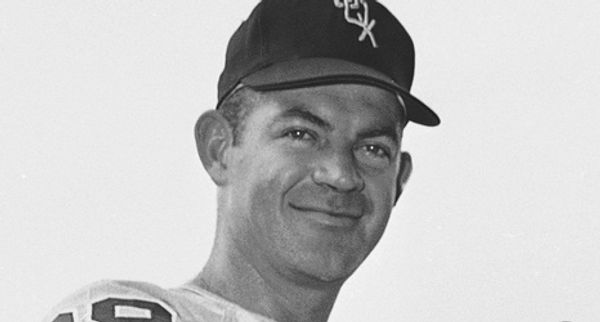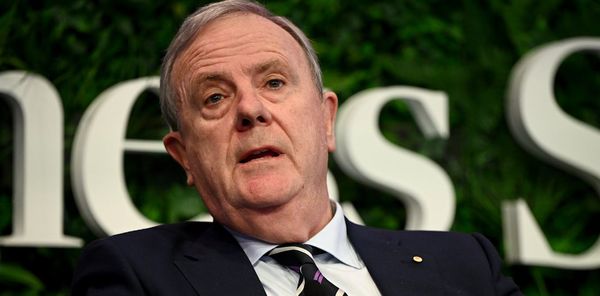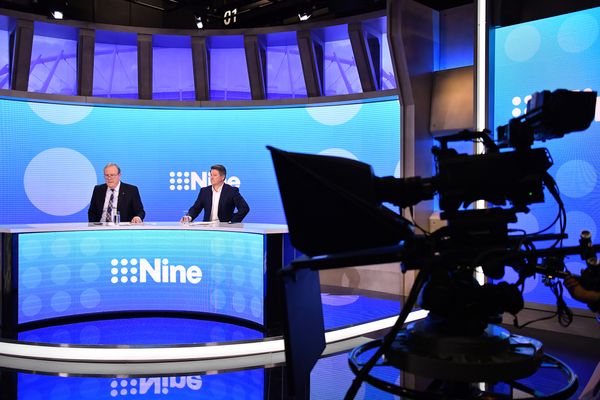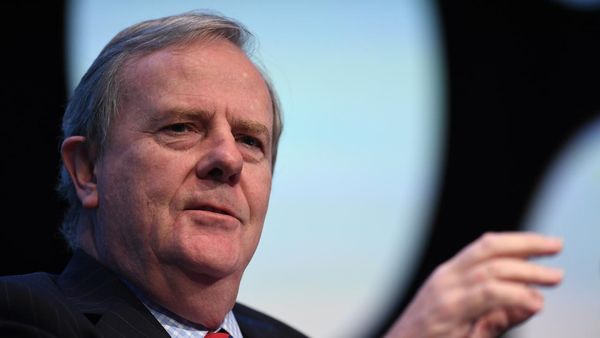
Peter Costello stepped down as chair of the Future Fund in February.
On Sunday he stepped down as chair of Nine Entertainment.
Thus ends Costello’s reign as Australia’s most conflicted business figure. A Liberal elder — one still prone to commentating on contemporary politics and backing his party — should never have been the head of a major independent institution like the Future Fund. Nor should he have been chair of a company that owns Australia’s second-biggest media company, a position for which his continuing political engagement and his chairmanship of the Future Fund rendered him unsuitable.
That he was effectively brought down by a journalist from Australia’s largest media company (strange how News Corp is suddenly worried about journalist safety — the killing of over 100 journalists by the Israeli Defence Force in Gaza is of no moment to them) is more of a footnote, one putting a user-friendly face on a story that’s about much more systemic issues than the great Canberra airport did-he-trip-was-he-pushed story.
Costello’s profoundly conflicted status at Nine ended up being rather appropriate given what was clearly a long-running cover-up in relation to allegations of misconduct by former news and current affairs head Darren Wick — which was only revealed thanks to the diligence of News Corp journalists and, later, Kate McClymont at Nine’s newspapers.
For all the promises of cultural change and hotlines and “independent” reviews, Nine’s board and senior management remain mired in a scandal directly arising from a willingness to look the other way about the behaviour of a powerful executive — and to use one of the basic tools of corporate cover-up, non-disclosure agreements, to suppress information.
A media company is supposed to hold the powerful to account and give a voice to victims of the abuse of power — but Nine allegedly placed its own corporate interests ahead of doing that.
This is just one more item in the sordid list of scandals that characterise Australian journalism — the list of executives and broadcasters booted from News Corp, or who left that company, after allegations of misbehaviour, and the disgraceful antics of senior people in Seven’s television current affairs area and that broadcaster’s support for rapists and war criminals.
That Costello stepped down in the wake of an encounter with a News Corp journalist merely demonstrates how insular and self-obsessed the entire industry is. This is a dying industry, one that is not going gracefully. The bullies of News Corp are busy campaigning against social media in a desperate and futile effort to get governments to stymie their competitors, while the company engages in yet another round of sackings to cut costs yet again. Nine’s share price is down by more than 40% this year. Seven West Media’s share price reached an all-time low of 18 cents on Friday. Ten went through another round of sackings in February and is now, like Seven, an adjunct of the fossil fuel industry.
And audiences are voting with their feet. In 2023, Netflix earned over $1 billion in revenue in Australia (on which, unlike News Corp, it paid at least a token amount of tax of $9 million). Google earned over $2 billion. Meta earned over $1 billion. These are companies that do what media companies used to do — offer advertising value for money to business and offer attractive content to consumers. Costello’s departure and replacement with former UK Sky executive Catherine West is deckchairs-on-the-Titanic stuff.
Is the end nigh for traditional media outlets? Let us know your thoughts by writing to letters@crikey.com.au. Please include your full name to be considered for publication. We reserve the right to edit for length and clarity.










